Golden Ratio
Rule of Thirds and Golden Ratio
The Rule of Thirds and Golden Ratio are two highly effective and easy-to-use composition techniques in photography. The Rule of Thirds divides the frame into thirds using four lines—two horizontal and two vertical—where these lines intersect form the Golden Ratio points.
The Golden Ratio, approximately 0.618, is closely approximated by a simple 2/3 ratio. This proportion is widely utilized in design work and similarly applied in photography to arrange the composition using the Rule of Thirds and position subjects at Golden Ratio points. Following the Golden Ratio method in distributing the elements of a photo frame can effortlessly enhance the clarity and structure of your photograph.
Rule of Thirds
Let’s start with the Rule of Thirds.
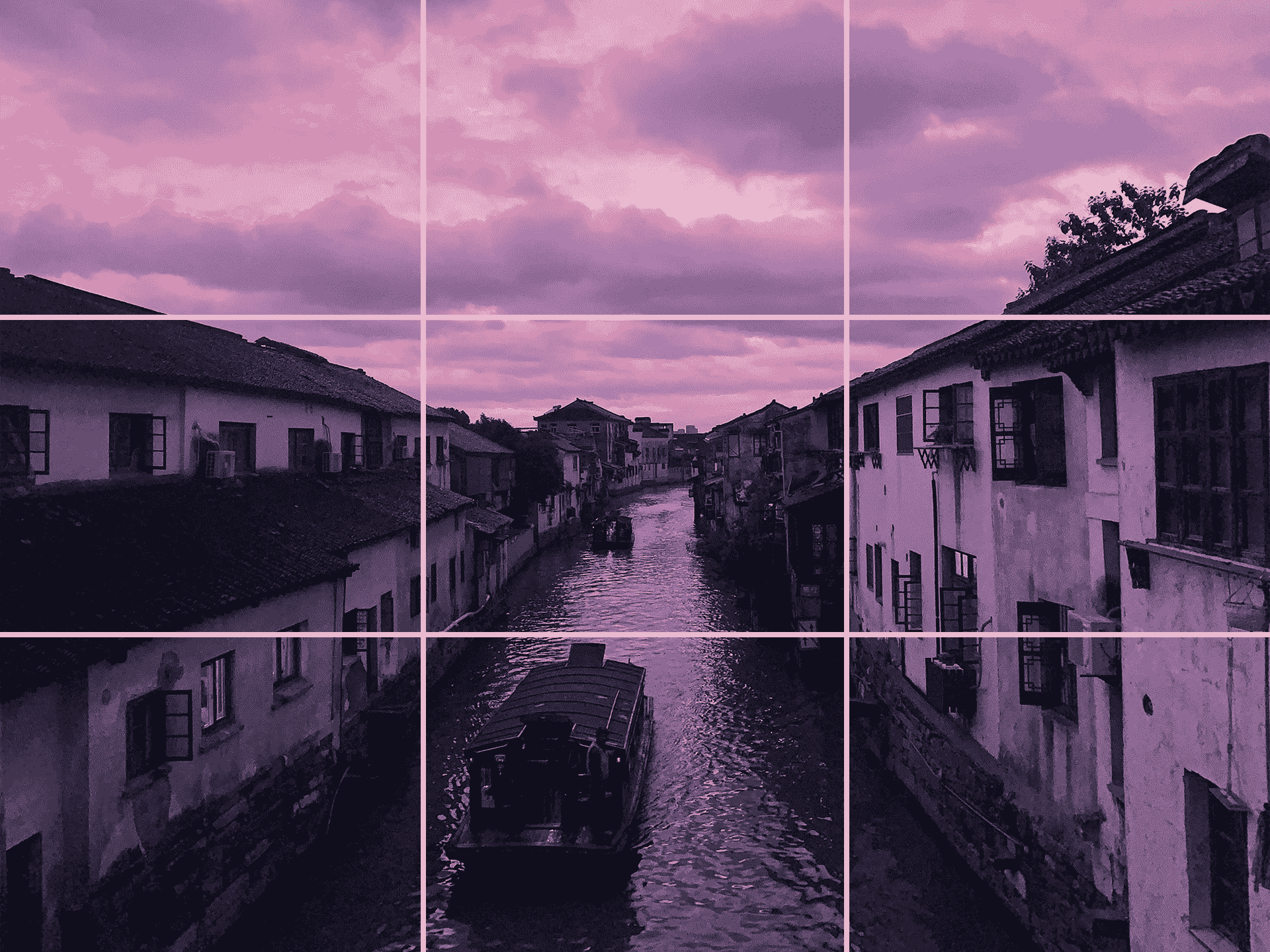
In this photo, the frame is divided horizontally, with the sky and buildings occupying a ratio of approximately 1:2. The main elements of the composition are divided into three parts: the river, the sky, and the ancient buildings on either side, each occupying roughly one-third of the frame. Noticeably, the sky occupies slightly more space due to its appealing appearance during typhoon season.
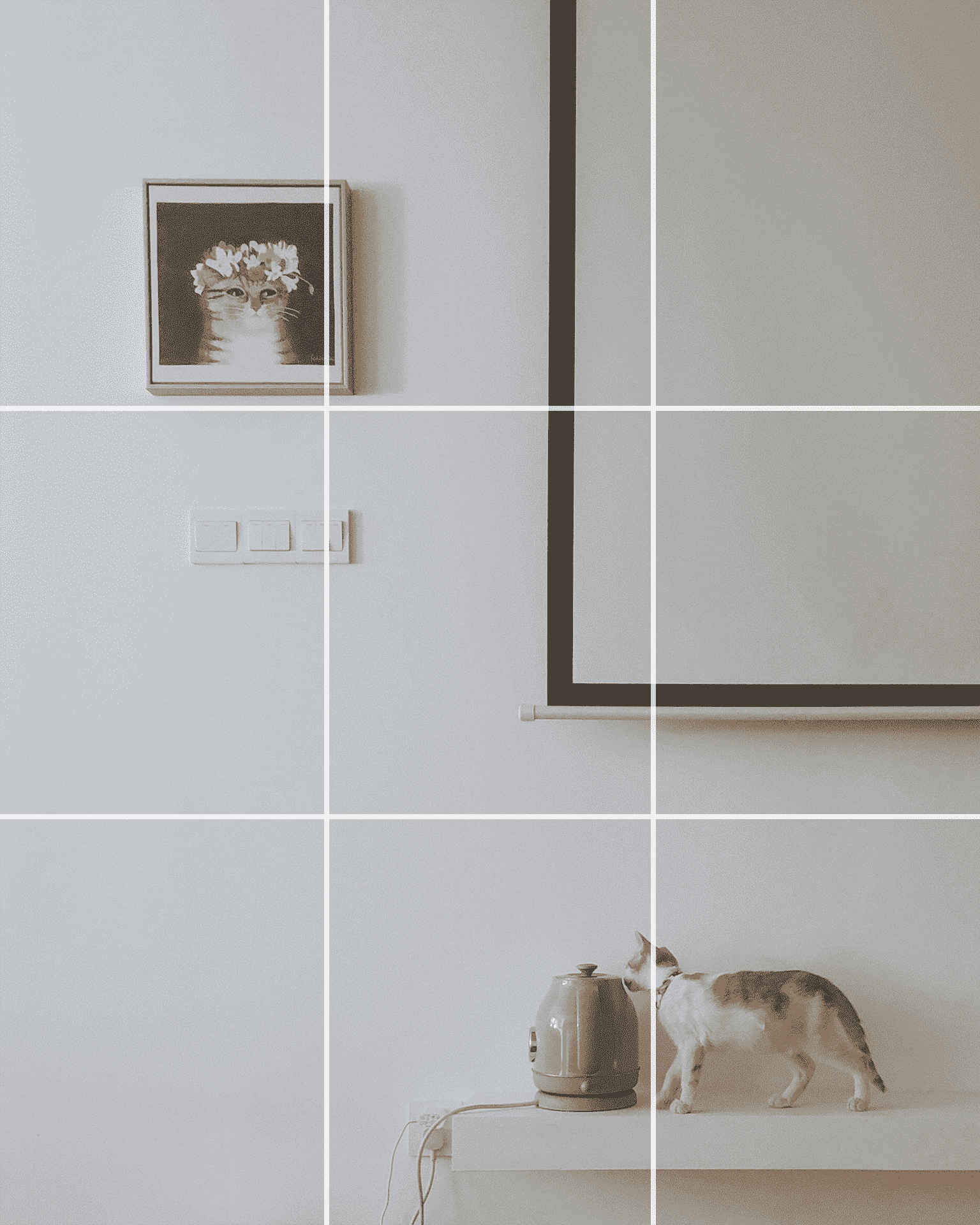
I positioned the cat and its frame using the vertical lines of the Rule of Thirds. This placement ensures both key elements in the frame are comfortably positioned.
The vertical lines of the Rule of Thirds maintain a balanced composition between the left and right parts of the frame, using the utility pole as a reference.
Golden Ratio
Next, let’s explore the Golden Ratio.
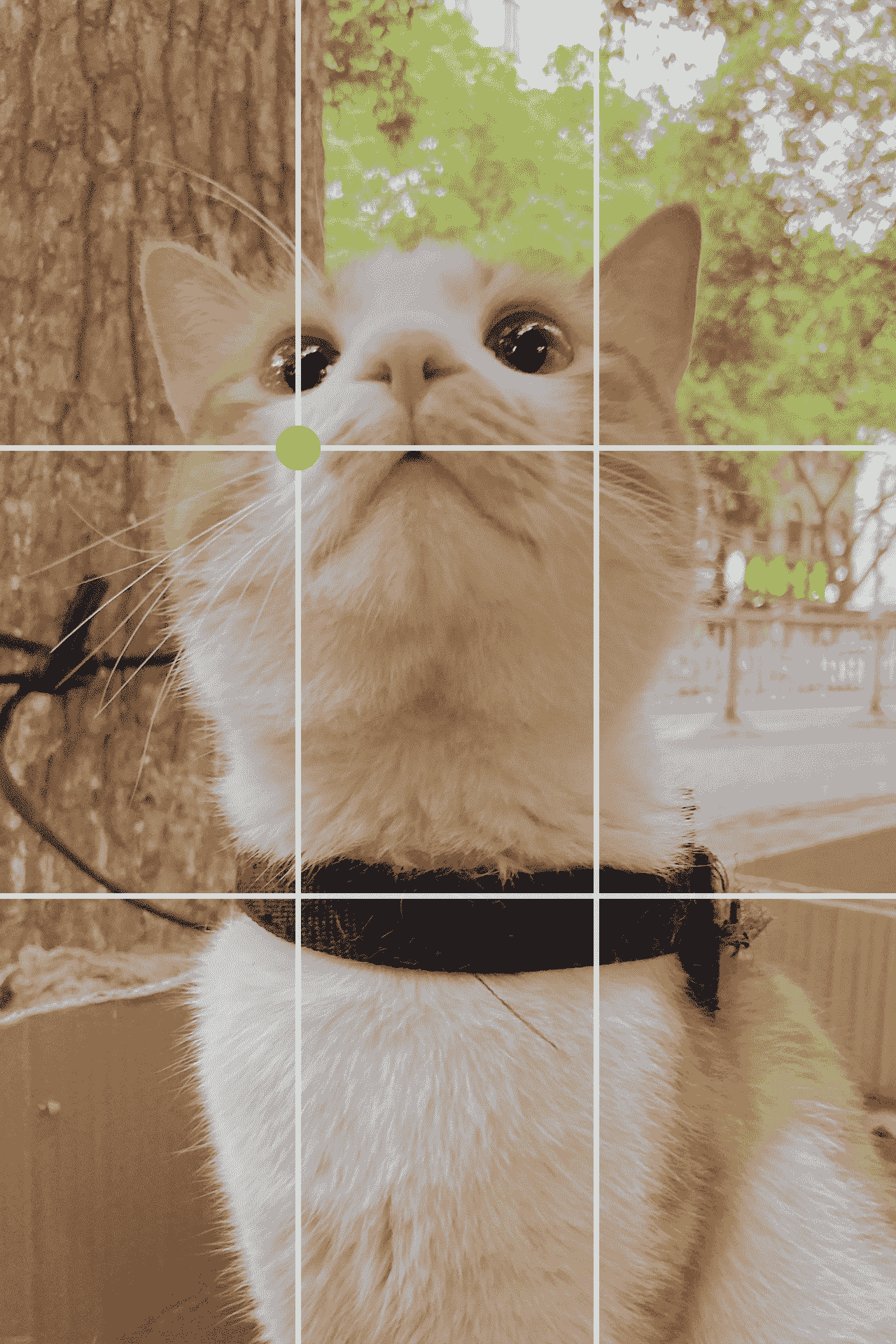
In this photo of the cat, the focus is on the cat itself, particularly its eyes. I placed the eyes at the Golden Ratio point to emphasize this crucial feature.
With the help of reference lines, you can see that the actual position of the cat’s eyes is slightly above the strict Golden Ratio point I mentioned earlier. This adjustment ensures the overall quality and presentation of the cat’s body content are not compromised.
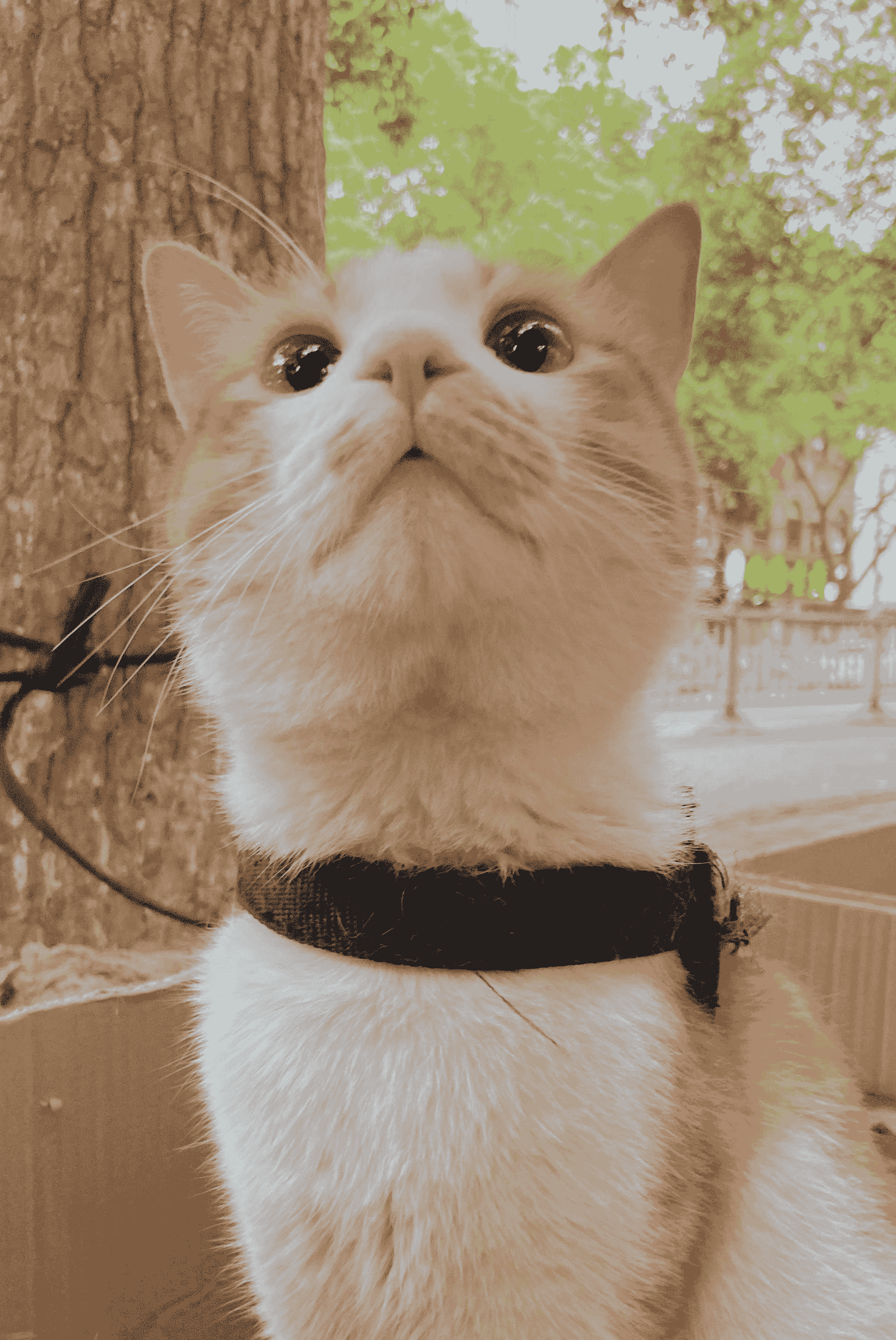
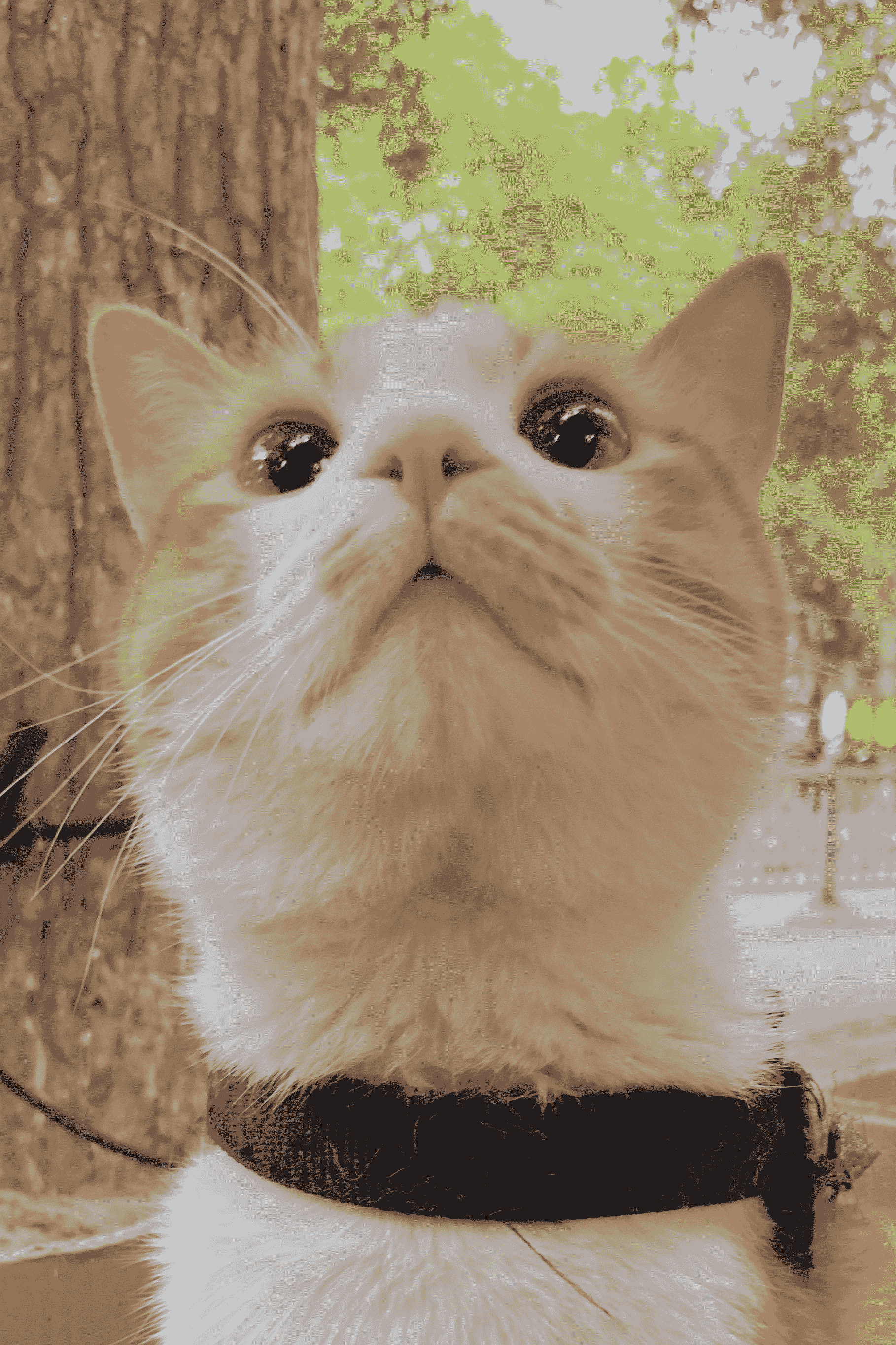
If I strictly placed the eyes at the Golden Ratio point(the right one), the photo might look like the example above, significantly impacting both the quality and content of the image.
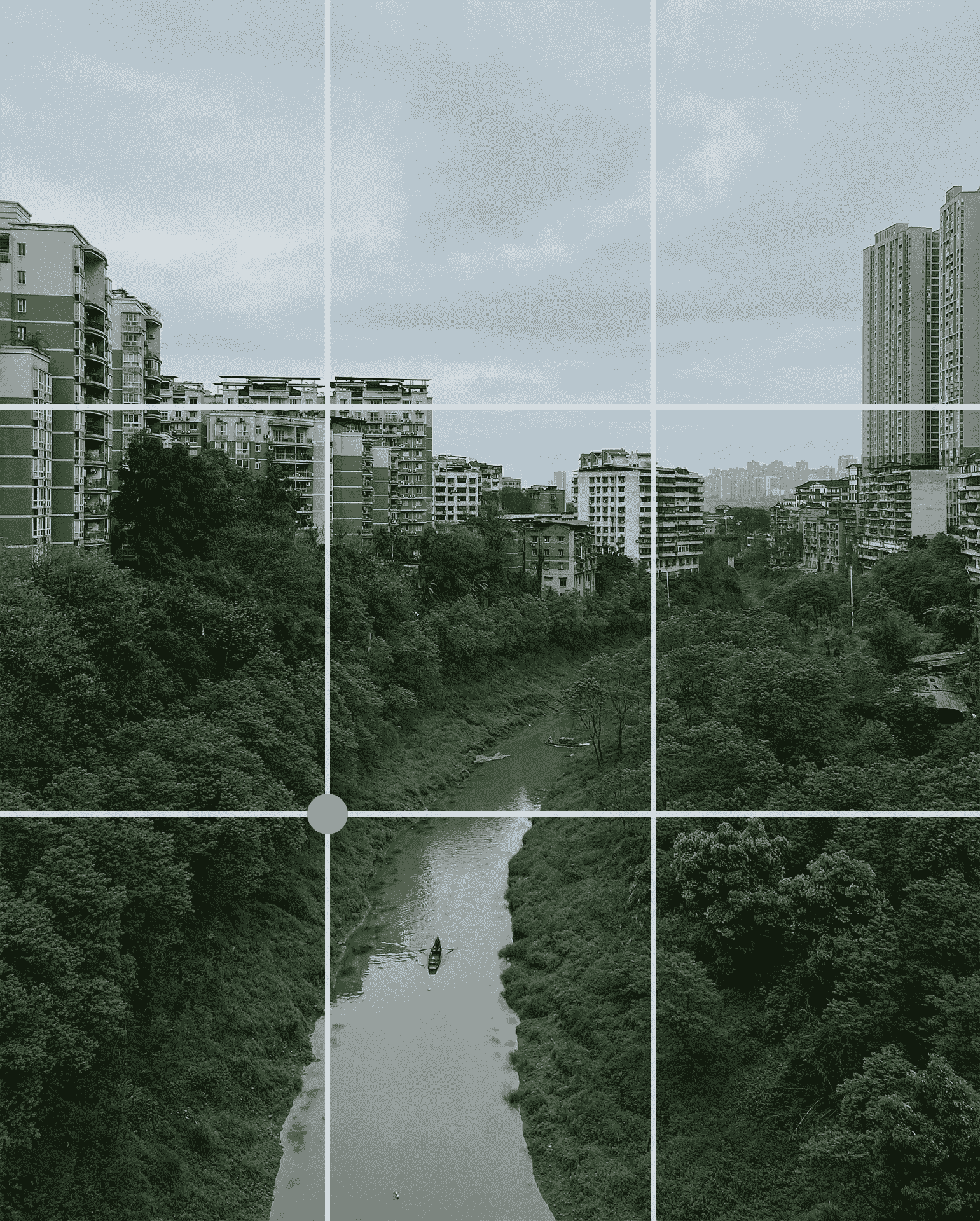
In this scene featuring a wooden boat in the river, the small proportion of the boat in the frame makes it less noticeable. Therefore, positioning it near the Golden Ratio point helps draw attention to it.
You may notice that I did not strictly adhere to the exact positions suggested by the Rule of Thirds or Golden Ratio. This flexibility is necessary as other factors such as content, emotion, and image quality also play crucial roles in composition.
Whether using the Rule of Thirds or Golden Ratio, it’s important not to obsess over precise placement. Instead, think deeply about the meaning behind choosing specific positions based on these compositional principles.
On This Page